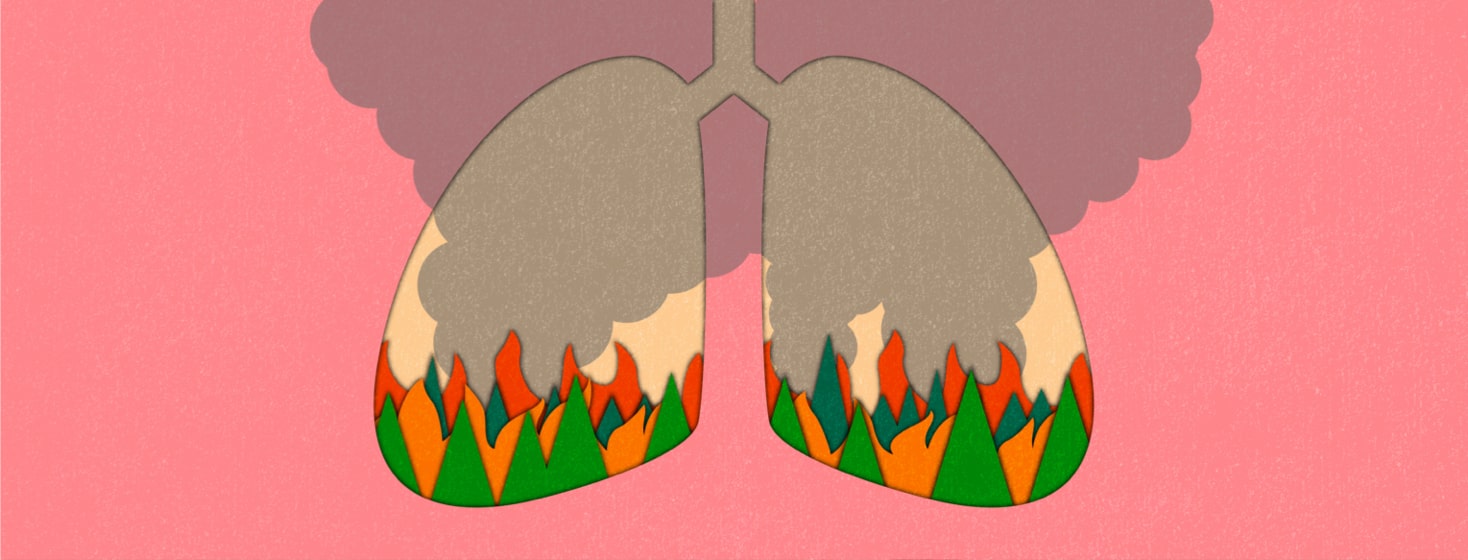Wildfires Have Become a New Worrisome Summertime Asthma Trigger
I've lived in the western United States for the past 16 years and have come to accept that wildfires during the summer months are just a way of life out here. Back in the early summer of 2019, a dangerous wildfire raged only 7 miles from my home. For weeks, the air quality was just awful and my eye allergies and asthma told the story. Luckily, this year has been rainy, and we've had no local fires. But we have been inundated with smoke at times from fires in other areas of the country. Sadly, this is becoming more and more common.
Researchers tell us that due to ongoing changes in climate conditions, we can expect effects such as higher ground temperatures and drier climates. That can lead to the spread of wildfires. And where there is fire, there will also be fine particulate matter in the smoke that affects air quality.1
Summer wildfires have erased decades of air quality improvement
The Clean Air Act of 1970 and advances in technology have greatly improved air quality over the past 50 years in the U.S. In fact, the EPA (Environmental Protection Agency) states that since the year 2000, PM2.5 concentrations have fallen by as much as 39%. (PM2.5 is a measurement of particulate matter size; PM meaning "particulate matter." PM2.5 particles are so tiny they are nearly invisible-- 30 times smaller than a human hair.) These improvements in air quality have occurred even with population growth, a rise in energy use, and Americans driving more miles.1,2
But unfortunately, wildfires are also on the rise in recent years and are having such a negative impact on our nation's air quality. Because of this, we are seeing that people who have chronic airway diseases such as asthma and COPD are being affected. Fine particles in smoke can cause health problems such as burning eyes, runny nose, and illnesses such as bronchitis. I can definitely attest to all of those effects.
You do not have to live close to the wildfires to feel their effects. Wildfire smoke can travel hundreds or thousands of miles from a fire, causing significant air pollution events in even distant areas. My brother, who lives in coastal Connecticut was affected by the Oregon fires earlier this summer.2
How wildfire smoke has affected air quality
Recently, a study was released that looked at the differences in air pollution from wildfires. They compared the same 2 to 3 week period during a low wildfire year (2011) to the same period during a high wildfire year (2018). Using easily-accessed NASA satellite data, observations on the ground, and weather data, they measured surface PM2.5 concentrations. PM, or particulate matter, is composed of a mix of solid particles and liquid droplets in the air.1
Researchers found that:1
- Smoke from fires in British Columbia and the state of Washington consisted of fine particulate matter that caused significant levels of pollution in 29 U.S. states.
- 15 of those states had two times as much particulate matter as they had in 2011.
- The most affected states were Washington, California, Wisconsin, Colorado and Oregon.
It is a plus that air quality during non-wildfire months has improved overall in the U.S. over the past 20 years. Unfortunately, the flip side is that summer wildfires are increasing in frequency and intensity. As a result, we are seeing widespread deterioration in air quality during the summer and early fall months over much of the country.
What you need to know
Wildfires occur mostly during the summer months, which tend to be hot and dry in the western part of the U.S. But as summertime wildfires have gotten longer and more frequent in recent years, respiratory health across our nation has suffered.2
Wildfire season and good asthma control
What does this mean if you have asthma? The first step is to know what your local air quality is, especially if you can detect smoke in the area. The AirNow.gov website can help you with that. The next step is to monitor your asthma control status, watching out for any worsening of your usual asthma symptoms or any new signs of breathing difficulties.
If you have an Asthma Action Plan, it should guide you on actions to take if you feel any kind of flare-up arising. Finally, it's important to stay indoors as much as you can any time there is significant smoke in the air. Keep your windows closed and turn up your air conditioning if possible. Also, be sure to consult with your health care team or seek emergency care if you need to.

Join the conversation